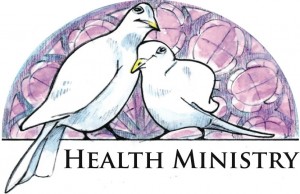 We encounter people with disabilities throughout our lives: in our jobs, churches, schools and in passing on the street. You may have a loved one who has a disability. People with disabilities are everywhere in our community. We co-exist with them, but do we understand their needs, enter into friendships or work relationships with them? Or are we afraid to deal with something we don’t understand?
We encounter people with disabilities throughout our lives: in our jobs, churches, schools and in passing on the street. You may have a loved one who has a disability. People with disabilities are everywhere in our community. We co-exist with them, but do we understand their needs, enter into friendships or work relationships with them? Or are we afraid to deal with something we don’t understand?
Truthfully, we are more the same than we are different. We are all created in God’s image (Genesis 1:26). We have the same needs for food, water, clothing shelter, and intimacy. We all need to have a sense of purpose. We all need to feel that we belong. A church community is a great place for everyone to come together, learn from each other and grow in God’s family. We are one body and we need each and every member to remain healthy and vibrant (1 Corinthians 12:12).
A few years ago I started a job working with people who had mental illness. They lived in residential programs. Most of the people I worked with were diagnosed with schizoaffective disorder. I knew very little about this illness; most of my experience was working with dementia or depression, so I felt like I was in a little over my head. Some of them intimidated me. I did not know how to respond to some of the delusional thoughts or hallucinations that the residents had. These residents would come to my office and talk to me about their health issues. Gradually, I learned that they had a lot of the same concerns I had. They were concerned about their health, medication, relationships, finances and freedom. As I got to know them, I learned how to communicate better. I wasn’t intimidated by their differences. In fact, I came to enjoy and appreciate them for who they were; people like me.
Dan Vander Plaats, director of advancement , of Elim Christian Services gives us five stages towards disability awareness: ignorance, pity, care, friendship, and co-laborers. We live in an information society, so we can seldom claim ignorance, although I confess that in certain situations I have been ignorant as in my experience working with people with severe mental illness. There are so many types of disabilities, no one will ever be above ignorance in all situations. Becoming friends and co-laborers requires persistence. It takes energy to make friendships and maintain them with anyone. Accepting each other’s weaknesses and limitations makes co-laboring together even harder. We will never be perfect, but we can reach towards the goal of friendship and co-laboring together by reaching out to each other, and God through perseverance in prayer.
~Donita Robards, Parish Nurse
*Some of the content was taken from the Inclusion Handbook edited by Terry A DeYoung and Mark Stephenson
